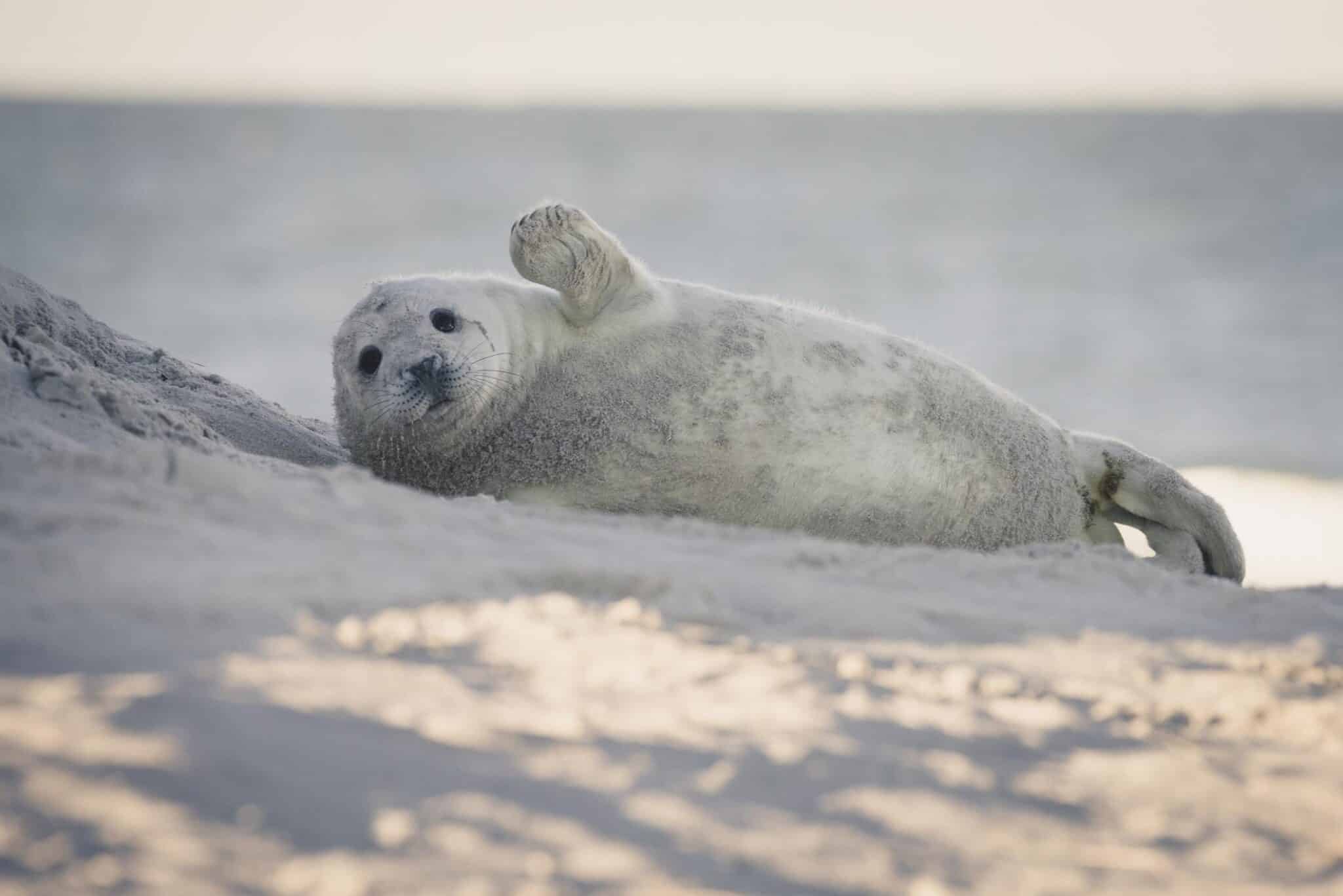

Westend61 / Getty Images
It turns out, humans have a skill in common with baby seals: we can both lower our pitch in response to the world around us.
That’s the result of a new study published in Philosophical Transactions of the Royal Society B Monday, which marks the first time this ability has been observed in baby seals.
“This is astonishing, as few other mammals seem capable of that,” study co-author Andrea Ravignani of the Max Planck Institute for Psycholinguistics said in a press release.
The study set out to look at vocal plasticity, the ability of an animal to change its vocalizations in response to its environment, as CNN explained. This is related to vocal learning, the ability to imitate sounds, which is unusual in mammals. This ability has been observed in adult harbor seals, but not infants.
“By looking at one of the few other mammals who may be capable of learning sounds, we can better understand how we, humans, acquire speech, and ultimately why we are such chatty animals,” Ravignani said in the release.
Pinnipeds, which include seals and walruses, are good case studies because they are capable of vocal learning and closer to humans than songbirds, which are often used in vocal learning studies, Caroline Casey, a research scientist and adjunct professor at the University of California, Santa Cruz’s Institute of Marine Sciences and ocean sciences department who was not involved with the study, told CNN.
“However, there’s a lot of differences, especially with respect to sociology and life history between humans and birds,” she said. “We’re always looking for mammals that would be good models for the study of vocal learning.”
The researchers focused on baby harbor seals because adult harbor seals keep quiet most of the time, the study authors wrote. To test the younger seals’ abilities, they worked with eight harbor seal pups at a rehabilitation center in the Netherlands, according to the press release. They recorded noises from the nearby Wadden Sea and then played them back to the pups at three different volumes.
In response, the baby seals demonstrated three remarkable abilities.
- They lowered their pitch when the sea noises were louder.
- They kept their pitch steadier when the noises were louder.
- One seal demonstrated the Lombard effect, a vocal pattern demonstrated by humans in which the speaker raises their voice when the environment is louder.
“Seal pups have a more advanced control over their vocalisations than assumed up until now,” Ravignani concluded based on the results.
Casey speculated to CNN that the seals might lower their pitch because lower sounds travel farther in windy environments like the sea shore.
“Or (the lower pitch) could help retain the pups’ identities since the fundamental frequency is a characteristic that’s strongly related to the identity and size of that pup,” Casey added.
Overall, the results confirmed that seals are a promising candidate to study in order to understand human speech. Up until now, humans are the only mammal demonstrated to have a direct connection between their cortex and their larynx, Ravignani explained in the press release.
“These results show that seals may be the most promising species to find these direct connections, and unravel the mystery of speech,” he said.
- California Grants Endangered Species Protections for World's ...
- Pollution Causing Food Scarcity, Death for Florida Manatees ...

 233k
233k  41k
41k  Subscribe
Subscribe 